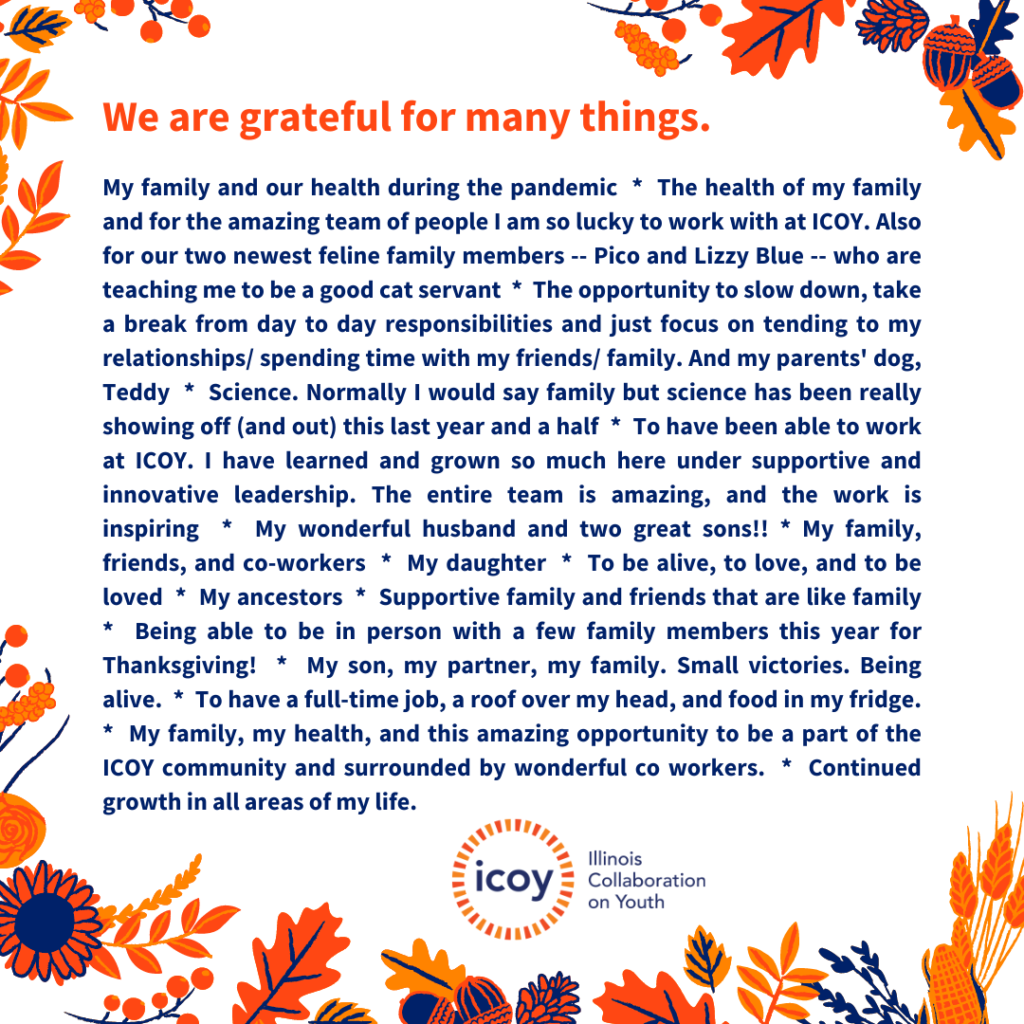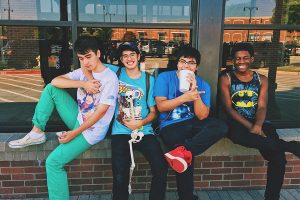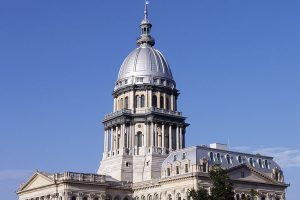Relearning Thanksgiving
Publisher: Andi Durbin
During this Thanksgiving holiday week, we recognize that many may be celebrating with friends and family. Perhaps they are gathering in-person for the first time in many months. We are grateful for the chance to reconnect, though we also understand that this time of year can be difficult for a large part of our community. Furthermore, we acknowledge the inaccurate stories of the holiday and work to relearn Thanksgiving origins. Additionally, we reflect on the challenges that we face as we seek to understand the ties between white colonization and Thanksgiving with more recent events like the verdict for Kyle Rittenhouse.
Gathering for the Thanksgiving Holiday
While many more will celebrate in-person this week, we make space for those that may not be granted this opportunity. Those navigating illness, whether mental, emotional, or physical, experiencing physical distance barriers, living through incarcerated sentences, facing strained family relationships, mourning the loss of a loved one. Those that may be in the same room as family and friends, but still feel isolation and loneliness. We hold these groups, and many more, in our hearts and hope for healing and peace.
Unlearning Thanksgiving Narratives
Also, we recognize that the original “story” behind the holiday causes harm to the indigenous community and underrepresented populations. During grade school years, it was common to learn about the Pilgrims and Indians. As youth, we may have been taught of a friendly feast, shared by Natives and the new settlers. However, during this holiday week, we encourage people to consider learning more about the history. In “What Really Happened at the First Thanksgiving? The Wampanoag Side of the Tale,” Indian Country Today interviewed the Mashpee Wampanoag Tribe’s Tribal Historic Preservation Officer to gain a clearer picture. We hope people will also rethink common Thanksgiving stories when talking with youth. According to National Geographic, the idea behind this holiday may have started in 1621. And since then, colonization and white supremacy have continued to challenge our country every day.
- Thanksgiving Lesson Plan from a Native American Perspective (Pre-K – 4th Grade)
- Thanksgiving, (Indian Country Today)
Alternative Ways to Celebrate Thanksgiving
However, there are holiday traditions that should continue. We can enjoy a meal and gather with friends and family. While we acknowledge the origination of the holiday, we can create a shift in focus from the idea of Pilgrims and Indians peacefully honoring the harvest of the season. We can work towards acknowledging pain and suffering caused by the colonization that has lasted for centuries.
Here are resources that include suggestions on how to celebrate Thanksgiving:
- Celebrating Thanksgiving Respectfully (McCormick Center for Early Childhood Leadership, 2020)
- How to Enjoy Thanksgiving Without Swallowing the Stereotypes (NPR, 2017)
- The True Dark History Behind Thanksgiving (Good Housekeeping, 2021)
- 9 Things You Can Celebrate Instead of Thanksgiving If It Makes You Uncomfortable (Bustle, 2017) * note that this article does not provide accurate historical information, however provides alternative days to honor
- National Day of Mourning (National Geographic, Grades 9 – 12+)
- Native American Heritage Month
- International Restorative Justice Week
Consider donating time or resources to various non-profit organizations across the state. The Native American Chamber of Commerce of Illinois provides a list of American Indian Organizations.
And as we continue to see time and time again, we know there is still a large amount of work to be done to break cycles that uphold white supremacy. Actions speak volumes. For instance, white youth with guns can take innocent lives with claims of self-defense. However, black youth are killed for existing. The recent verdict for Kyle Rittenhouse and the tragic end for Trayvon Martin and additional black youth provide a clear example.
We are Grateful
Along with sincere thoughts and prayers, we continue with plans of action while we express our gratitude. And there are many, many things for which we are thankful. We appreciate the continued opportunities to advocate for the safety, health, and success of Illinois’ children, youth, and families. In addition, we are grateful to act as a collective voice for policy and practice and to connect and strengthen our member organizations that serve families across the state. Furthermore, we are thankful for our members who collaboratively work with us to create plans of action for a brighter future for the youth in Illinois.
Indian Country Today Media Network: “Do you regard Thanksgiving as a positive thing?”
Ramona Peters, the Mashpee Wampanoag Tribe’s Tribal Historic Preservation Officer: “As a concept, a heartfelt Thanksgiving is very important to me as a person. It’s important that we give thanks. For me, it’s a state of being. You want to live in a state of thanksgiving, meaning that you use the creativity that the Creator gave you. You use your talents. You find out what those are and you cultivate them and that gives thanks in action” (What Really Happened at the First Thanksgiving? The Wampanoag Side of the Tale,” Indian Country Today).

ICOY Staff Contributions
Written by ICOY Communications & Marketing Manager Melissa Franada. Editing contributions by ICOY CEO Andrea Durbin and the Trauma Initiatives Team. Find more information on the ICOY Staff.






